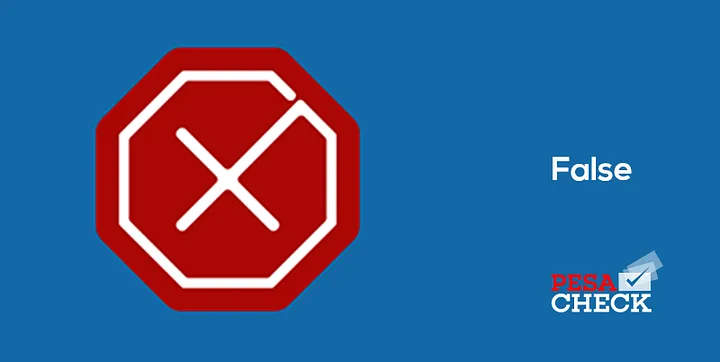ALTERED: Donald Trump has not advised President Ruto on airport deal

ALTERED: Donald Trump has not advised President Ruto on airport deal
In the original video, Trump did not mention President Ruto.
This video, submitted for fact-checking via PesaCheck’s WhatsApp Tipline purporting to contain former United States President Donald Trump’s advice to Kenyan President William Ruto against selling an airport, has been ALTERED.
The video was also shared on X (formerly Twitter).
The text accompanying the video reads, “Donald Trump has sent a message to Ruto on the sale of our Airport to Adani”.
A video of Trump standing behind a podium written “TRUMP VANCE 2024” is attached to the X post.
Above the words “TRUMP VANCE 2024” is a sentence in a smaller font that reads, “text NC to 88022”.
“I don’t think if it is right for a president to sell the airport or any property that is a public asset. I wouldn’t advise Ruto to sell the airport or rather things that belong to the country. That’s not right,” Trump says in the clip.
There is also text on the video that reads, “Trump on Ruto selling the airport”.
The video was published after news of the proposed Adani Airports Holdings Limited takeover of the Jomo Kenyatta International Airport (JKIA) in September 2024.
However, is it true that Trump advised President Ruto against selling an airport in Kenya?
A reverse image search of the video under investigation shows that Trump was not discussing President Ruto and Kenya. The original footage is from a rally in Asheboro, North Carolina, on 21 August 2024, where Trump, the Republican presidential candidate, addressed a rally and focused on national security.
Trump criticised US President Joe Biden and Vice President Kamala Harris for military operations like the Afghanistan mission and accused them of weakening the U.S. military. This rally, his first outdoor event since an assassination attempt in July 2024, contained no mention of Ruto or Kenya.
https://www.youtube.com/watch?v=bnXfqGXFiC0
Similar to the clip that PesaCheck is debunking, in the original video, Trump was standing behind a podium with the words “TRUMP VANCE 2024.” Above the phrase “TRUMP VANCE 2024,” a sentence in smaller font reads “TEXT NC TO 88022.”
From left to right: The North Carolina rally video as shared by Fox 9 Minneapolis St. Paul versus the video under interrogation.
There are other signs suggesting the video is edited. For instance, Trump’s words are out of sync with his lip movements, and speaks continuously for six seconds without natural pauses.
PesaCheck analysed the video using two AI detection tools. Deepgram estimated a 78 per cent probability it is a deepfake, and five of seven detectors in DeepFake-O-Meter confirmed it was AI-generated. Moreover, no credible media outlet has reported Trump advising Ruto against selling a Kenyan airport.
From left to right: Deepware results versus DeepFake-O-Meter results after uploading the video under scrutiny.
PesaCheck has looked into a video, submitted for fact-checking via the WhatsApp Tipline and shared on X (formerly Twitter) claiming to show former US President Donald Trump advising Kenyan President William Ruto against selling an airport and found it to be ALTERED.
This post is part of an ongoing series of PesaCheck fact-checks examining content marked as potential misinformation on Facebook and other social media platforms.
By partnering with Facebook and similar social media platforms, third-party fact-checking organisations like PesaCheck are helping to sort fact from fiction. We do this by giving the public deeper insight and context to posts they see in their social media feeds.
Have you spotted what you think is fake or false information on Facebook? Here’s how you can report. And, here’s more information on PesaCheck’s methodology for fact-checking questionable content.
This fact-check was written by PesaCheck fact-checker Naomi Wanjiku and edited by PesaCheck copy editor Paul Tajuba and chief copy editor Stephen Ndegwa.
The article was approved for publication by PesaCheck managing editor Doreen Wainainah.
PesaCheck is East Africa’s first public finance fact-checking initiative. It was co-founded by Catherine Gicheru and Justin Arenstein, and is being incubated by the continent’s largest civic technology and data journalism accelerator: Code for Africa. It seeks to help the public separate fact from fiction in public pronouncements about the numbers that shape our world, with a special emphasis on pronouncements about public finances that shape the government’s delivery of Sustainable Development Goals (SDG) public services, such as healthcare, rural development and access to water/sanitation. PesaCheck also tests the accuracy of media reportage. To find out more about the project, visit pesacheck.org.



